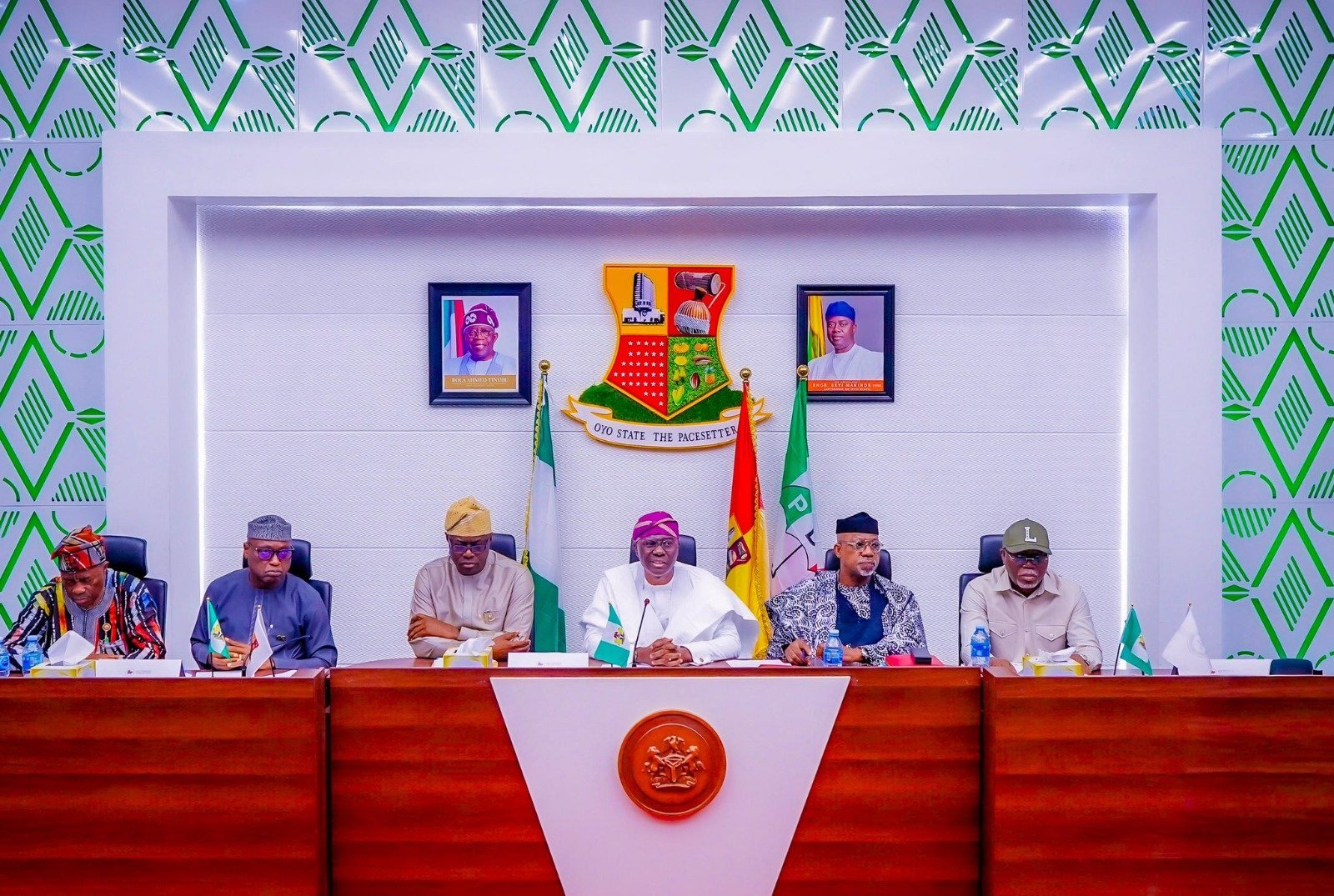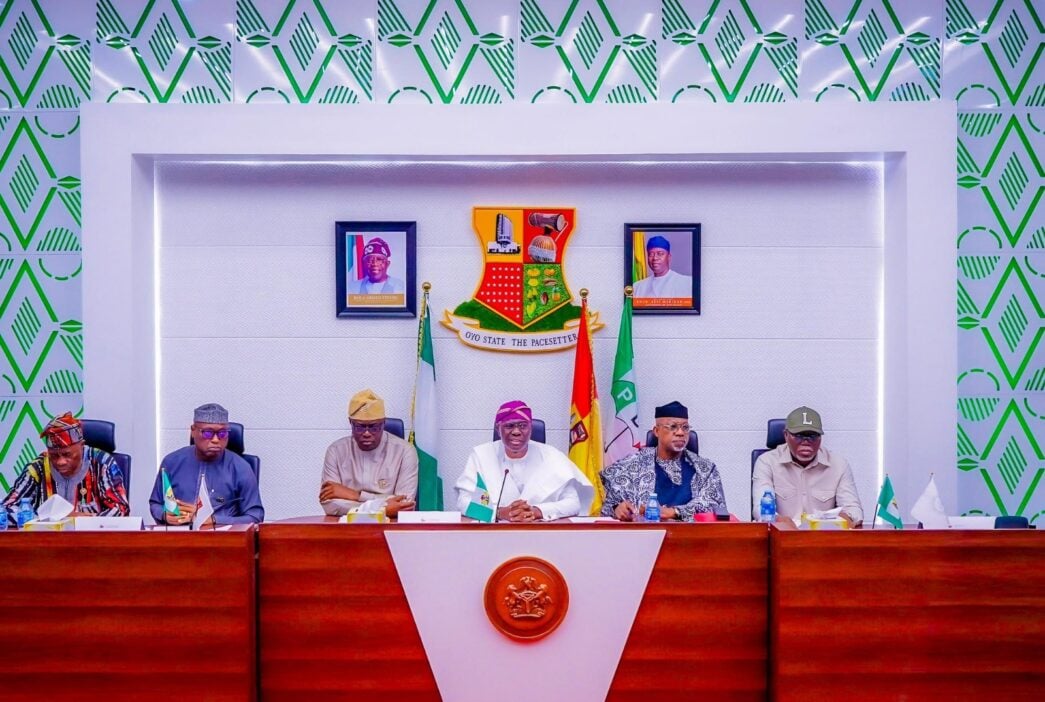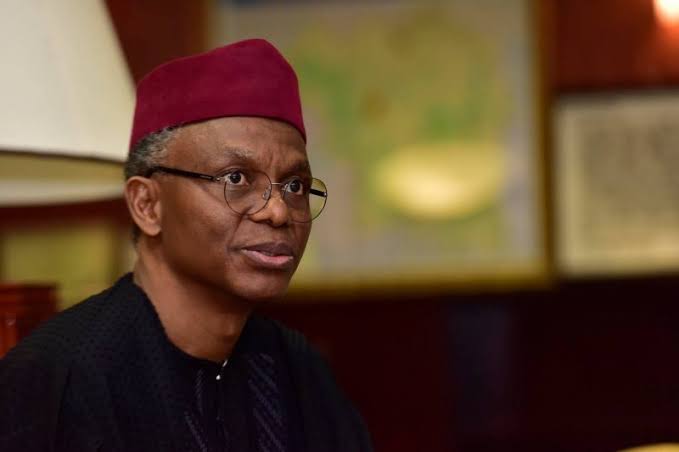BY OGUNGBILE EMMANUEL OLUDOTUN
You’ll agree with me that the emergency meeting of the South West Governors’ Forum in Ibadan on November 24, 2025, did not happen by coincidence. It was triggered by the thick wave of alarming attacks in other parts of the country that sent shockwaves across the federation. The abductions at Government Girls Comprehensive Secondary School in Maga, Kebbi; the attack on St. Mary’s Catholic institution in Papiri, Agwara LGA of Niger State; and the kidnapping incident at the CAC Church in Eruku, Kwara, all exposed once again how fragile security remains across Nigeria. Although these tragedies occurred outside the Southwest, they served as a “time bomb” reminder, insecurity anywhere is insecurity everywhere.
Fearing that similar patterns could sweep into their own states, the governors convened urgently, determined to reassess the region’s defences. However, despite the gravity of the moment and the strong declarations that followed, a familiar question shadows the communiqué: the governors have spoken, but will anything really change?
Strategically, the communiqué opened with formal commendations for President Tinubu’s response to the recent kidnappings, especially the rescue efforts in Kwara and Niger. However, behind the diplomacy was an unmistakable undertone; the Southwest knows that it cannot rely solely on the federal structure to safeguard its millions of residents.
Advertisement
Criminal groups are evolving faster than Nigeria’s national security architecture.
Banditry, kidnapping, forest invasions, illegal mining, and unregulated migration are stretching federal resources thin. The governors recognise this reality more clearly than ever, and the tone of their resolutions reflects a region preparing to shoulder responsibility for its own survival.
One of the most ambitious initiatives unveiled was the creation of a Southwest Security Fund under the DAWN Commission, a collective financing pool intended to strengthen regional security operations. In theory, it could finally give Amotekun the resources, training, and technology it has lacked for years. However, history offers a warning: the south-west has launched bold security ideas before, only for enthusiasm to fade once political distractions set in. Will this fund survive the familiar cycle of loud beginnings and quiet endings?
Advertisement
Yes, the plan to establish a real-time digital intelligence-sharing platform across the six states is equally significant. Today, speed and information determine who wins against criminal networks. But intelligence in Nigeria is often treated as political capital, not a shared asset. Technology alone will not solve this. Can the region overcome entrenched habits of secrecy, rivalry, and bureaucratic territorialism?
If not, the platform will remain a digital decoration rather than a functional tool.
The situation in the forests remains one of the region’s biggest threats. Dense forest belts across the south-west have silently transformed into ungoverned zones, hideouts for kidnappers, illegal loggers, migrant criminal cells, and mining syndicates. The governors called on the federal government to deploy forest guards, with states providing personnel, signalling a recognition that reclaiming these forests is now a matter of regional survival. However, securing thousands of hectares demands more than manpower; it requires coordinated aerial surveillance, intelligence-led operations, and the political courage to dismantle long-protected criminal networks.
Interstate migration, another escalating concern, was addressed with unusual firmness. The region’s openness has always been part of its strength, but weak identification systems and porous borders have created vulnerabilities. The call for tighter collaboration with NIMC to track and verify movement is pragmatic. But it must be implemented with constitutional sensitivity to avoid ethnic profiling or unnecessary tension. How does the region strike a balance between security vigilance and national cohesion? That is the real test.
Advertisement
Illegal mining, one of the hidden engines of violence in the region, was also highlighted. Mining syndicates, often protected by powerful interests, have been linked to environmental destruction, extortion networks, and armed criminality. The governors’ demand for stricter licensing and enforcement is welcome, but the real question is whether any state is prepared to confront the political and financial cartels benefiting from the chaos. Without that courage, illegal mining will continue to flourish under the same old excuses.
Perhaps the most politically charged statement was the reaffirmation of the call for state police. For years, the south-west has advocated decentralised policing, insisting that no federal force can adequately manage the unique challenges of every Nigerian state. The declaration that “the time is now” is bold, but familiar.
This demand has echoed for over two decades, only to be stalled by politics, constitutional delays, or fears of misuse by state actors. Will this renewed push finally break the cycle, or is it another momentary surge of resolve?
Beyond security, the communiqué touched on agriculture, food security, climate concerns, and the roles of DAWN and the Southwest Development Commission. These acknowledgements are significant because insecurity grows where development is weakest. Yet the statements remained broad, offering direction but not detail. Execution, not intention, will determine whether these promises reshape the region or remain well-written footnotes.
For residents of the south-west, one truth stands out: peace is never sustained by speeches; it is protected through consistent action. The communiqué is a blueprint, not a breakthrough. Its power lies not in its language but in what the governors do next.
Advertisement
The attacks in Kebbi, Niger, and Kwara have served as a wake-up call. Whether the Southwest truly wakes up or slips back into complacency will shape the region’s destiny in the months ahead. The question is not whether change is possible; it is whether the political will to pursue it will outlast the headlines.
Ogungbile Emmanuel Oludotun can be contacted via [email protected]
Advertisement
Views expressed by contributors are strictly personal and not of TheCable.


